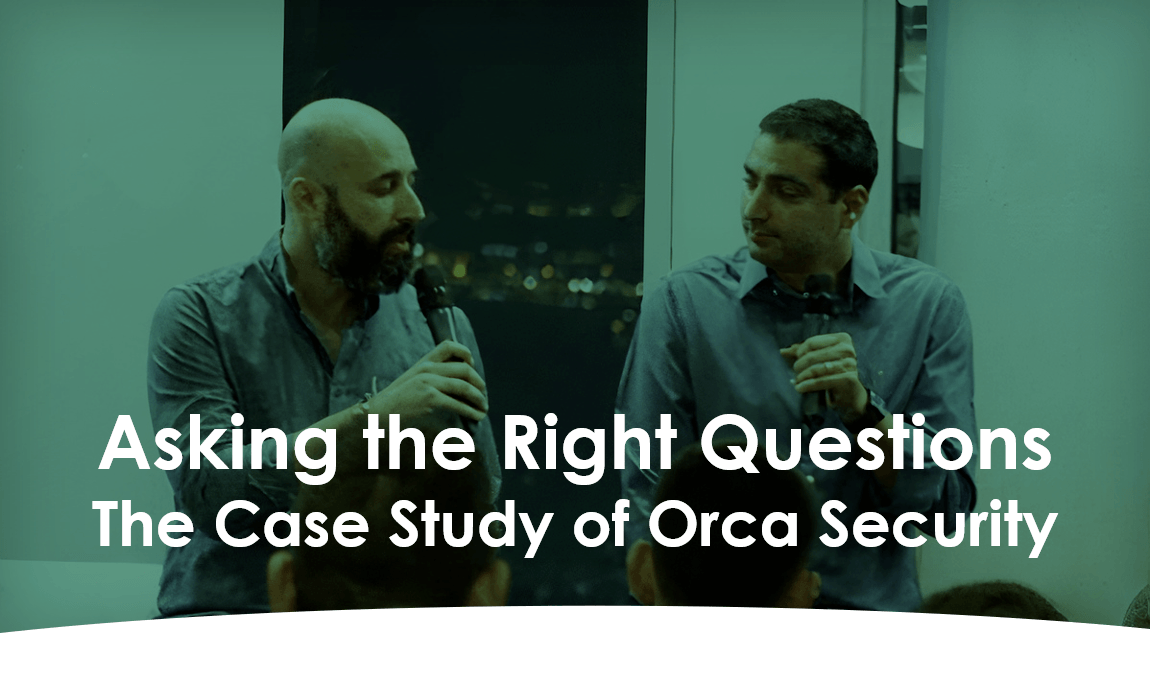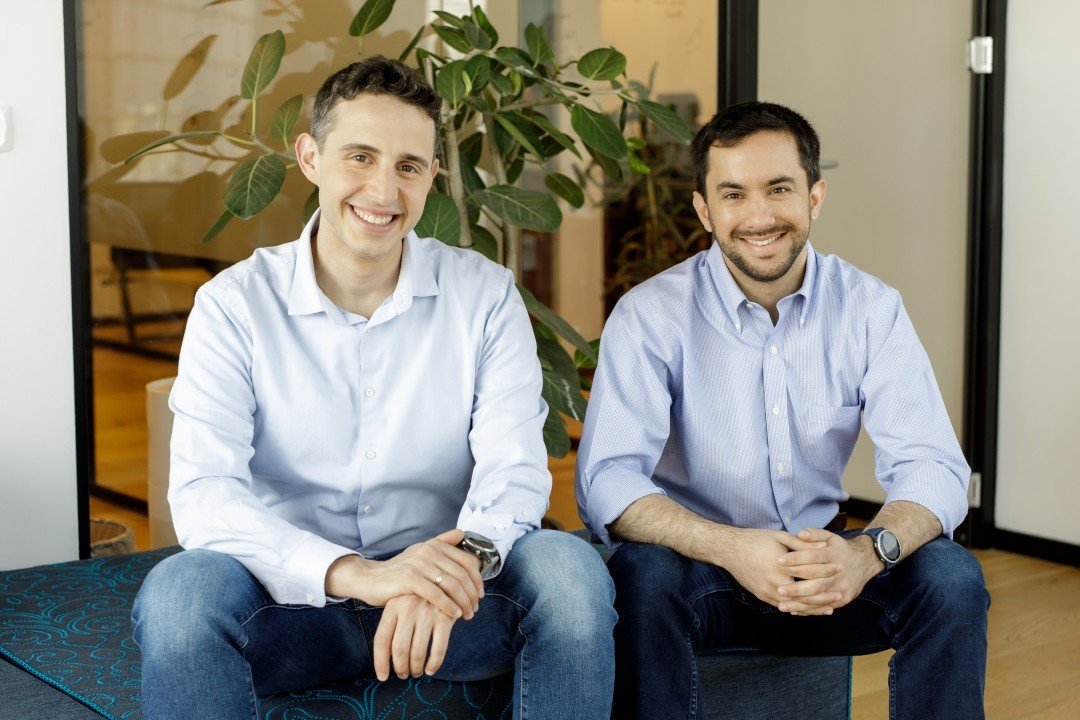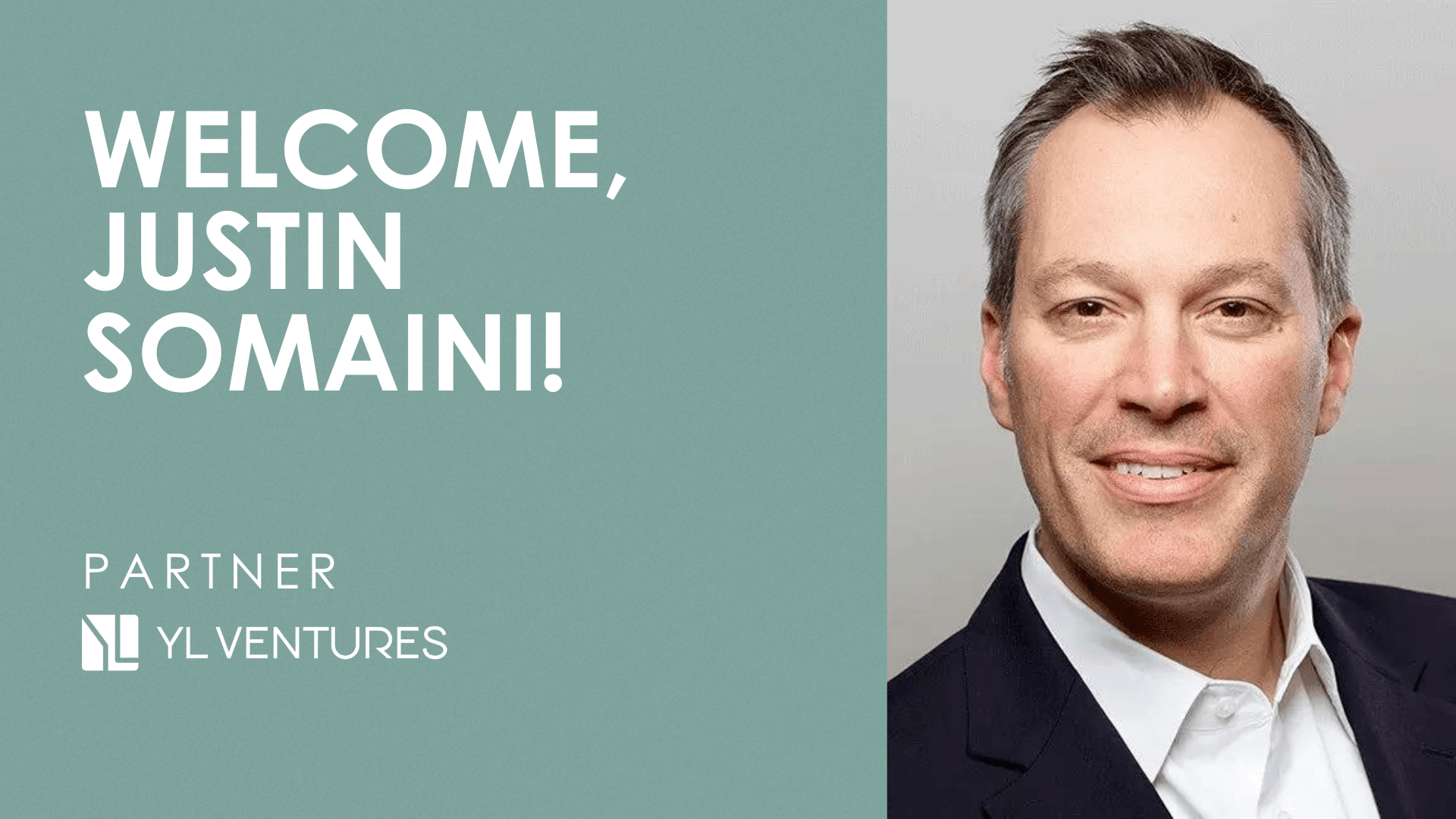Asking the Right Questions: The Case Study of Orca Security
YL Ventures' portfolio company Orca Security's Co-founder & CPO Gil Geron shares his insights with YL Ventures’ Partner, Ofer Schrieber in Ofer's latest blog post. The two share perspectives and best practices on executing a successful ideation process, growth challenges, and considerations that entrepreneurs must take into account when building a thriving startup.
Open ModalOrca’s eight co-founders, led by Avi Shua and Gil Geron, were all experienced security professionals with a strong head start when they began ideating cybersecurity unicorn Orca Security. They had decades of product leadership between them, were very familiar with the industry, and had connections with incumbent market leaders. They had another significant advantage – they identified a massive, industry-wide security problem. I spoke to Gil about Orca’s journey from its days as a young startup to becoming a market-leading unicorn, and how going back to the basics was a key factor in their success.
Startup ideation processes typically begin with the search for a lucrative market opportunity, followed by the development of a groundbreaking feat of technological innovation that will leave all competition in the dust. When they’re ready, entrepreneurs may present potential investors with a viable plan or even just a vision for a product geared to address existing problems in the industry. The question is, is that all it takes to succeed?
“Cloud security was a rising challenge when we founded Orca two years ago. Many companies in this field were essentially adapting on-prem security solutions to the cloud – a potentially safe bet at the time. There was no clear and concise definition of the security problems endemic to the cloud which demanded a new way of thinking, and a return to the security drawing board.” says Gil. Excited by this new frontier, development teams charged ahead and took full advantage of the cloud for productivity and usability. Security teams came in late in the game, armed with antiquated solutions and gating mechanisms which left organizations with two choices – do I want efficiency or do I want security? This harmful friction became a problem, which was exactly what Orca Security needed.
“We saw the cloud as a constantly expanding problem space and realized that the solution for securing it could not be limited or too specific. This is the first question founders should ask themselves – is my problem big enough?” Founders should be cautious of the “new shiny toy” syndrome, which may lead to seeking out the latest technology to leverage your product, becoming a solution looking for a problem instead of the other way around. If founders approach their ideation phase with a confident conviction whereby they’ll build a great product and then customers will want to buy it – they’ll soon realize they’ve gotten it all wrong. Ideas can prove to be unrealistic and solutions may require adjustments and significant changes due to continuous market feedback and constant friction. If the problem space is wide enough to innovate in, there is a strong enough basis for a do-over. Admittedly, no founder gladly welcomes failure of any kind. However, resilience is key to entrepreneurship, and setting ego or attachment to a product over reason is the surest way to failure. If the chosen problem space is wide enough, a successful pivot from the initial product – not the initial problem – could ultimately determine a startup’s success or downfall.
“If your problem space is limited – you should reassess your company’s potential. Find a big problem to navigate in, understand why no one has succeeded in solving it, and get moving,” Gil urges. Examples of successful product pivots abound, and include several of the world’s largest companies to-date such as Slack and Twitter. Hands-on investors can be game-changers in executing this difficult shift. Our focus as early-stage investors is to back a strong team with the potential to innovate within their chosen market. During our due diligence process with entrepreneurs, we’ve witnessed founders reassess and change routes due to concerns our team and advisory network of cybersecurity executives expressed about the size and scope of their problem space. If trusted investors indicate that you don’t have a large enough market for your solution, it would be wise to go back to the drawing board.
Finding a large problem to navigate in should be followed by understanding where your solution fits within it. Gil suggests that this sounds easier than it really is, and boils down to the value a startup provides its customers. “Founders must ask themselves – why are we relevant in this specific market at this specific time? There are three types of potential customers: customers with no solution who are convinced they don’t have a problem, customers with an irrelevant solution who are open to finding something new that will improve their security posture, and customers with a great solution that they are happy with. The last type of customer is the most valuable to founders – they will force you to really understand and explain why you will provide them with more value than what they have today.” Finding a product-market fit can be more important for an early-stage startup than revenue, and one invariably leads to the other. Before investing resources on honing your sales pitch, make sure that there’s a real and established need for your product – not anyone else’s – in a relevant and lucrative market.
Preparing for customer introductions as an early-stage startup is daunting, and difficult to navigate alone. “Founders, even experienced ones, need a partner who knows the playing field and can steer them in the right direction,” says Gil. “Choosing an early-stage investor who specializes in your industry and has a great network is significant. These VCs tend to be stable. They are used to the ups and downs of early stage startups and are not phased by them, and their stability will provide your startup with the balance you need on the founder rollercoaster. Strong investors will support you through ideation, customer introductions and go-to-market, and they have seen enough to know what will work and what won’t. At these early stages, capital is not the only focus when choosing an investor – it’s about growth and guidance for the long term.”
Gil presents an interesting take on a startup’s lifecycle as it grows. “The path we took at Orca from seed to unicorn is a classic ‘Hero’s Journey.’ In this journey the hero sets out on an adventure, perilous and unknown. The most important part of his journey are the people he meets along the way. Similarly, a new startup needs the guidance of advisors and investors who are all-in and determined to move the founders along in the challenging first steps of their journey. These investors must fit the company’s stage; a late-stage investor may not have the bandwidth and attention that a new startup requires. As the adventure progresses, a startup’s needs change and evolve, requiring a different set of tools new investors can provide.”
“Growth” has become an often-used term when founders pitch their offering to potential investors. Gil points out the challenges and considerations required to successfully build out your startup, and not surprisingly – cautiousness is key. “Yes, growth is important. Becoming a unicorn in two years is an accomplishment which we’re proud of. But growth can’t happen without setting the foundations for a strong and sustainable company, for the long term,” Gil says. “Growth has its obstacles, and as a founder you should realize that critical aspects of your company and product need time to mature and you can’t speed up strategic processes for the sake of beating competitors to the unicorn finish line. You must constantly ask yourself – what is the most important thing I need to focus on now? It may be something that as a founder, you don’t think you need to bother with, such as your technical support processes, human resources, customer success – but you have to put everything aside, including your product, and focus on it. Don’t assume that your company’s high valuation is a free pass – you have to earn it.”
It may seem counter-intuitive for innovators to begin their process by identifying the roadblocks, gaps and pitfalls that plague their industry. In cybersecurity, for example, many expansive problem spaces exist within the basic building blocks of cybersecurity hygiene. These may not seem as exciting or lucrative as emerging domains, and may be overlooked by young entrepreneurs who are seeking to reinvent the wheel and are focused only on building groundbreaking solutions. If Orca’s mere two-year transformation from startup to unicorn is any indication, founders should go back to the basics and ask themselves the right questions.





